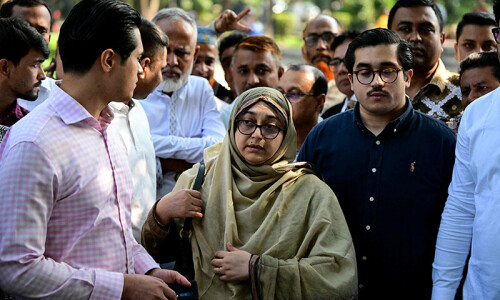ISLAMABAD: With its theme “from farm to plate, make the food safe” the Health Day is being observed across the globe on Tuesday. The day is commemorated every year on April 7 to mark the setting up of the World Health Organisation in 1948.
The purpose is to highlight challenges in the health sector, review the response and debate strategies to defeat health hazards.
WHO Director General Dr Margaret Chan in a message said food production had been industrialised and its trade and distribution globalised.
These changes have the potential for food to become contaminated with harmful bacteria, viruses, parasites or chemicals.
“A local food safety problem can rapidly become an international emergency. Investigation of an outbreak of food-borne disease is vastly more complicated when a single plate or package of food contains ingredients from multiple countries,” she said.
World Health Day is being observed today
Unsafe food can contain harmful bacteria, viruses, parasites or chemical substances, and cause more than 200 diseases – ranging from diarrhoea to cancers. Examples of unsafe food include undercooked foods of animal origin, fruits and vegetables contaminated with faeces, and shellfish containing marine biotoxins, the WHO said in a statement.
Around 582 million cases of food-borne diseases were reported since 2010, of which 351,000 patients died.
Over 40 per cent suffering from diseases caused by contaminated food were children under five years of age.
At the consumer end of the food supply chain, the public plays important roles in promoting food safety, from practising safe food hygiene and learning how to take care when cooking specific foods that may be hazardous (like raw chicken), to reading labels when buying and preparing food.
Dr Kazuaki Miyagishima, Director of the WHO’s Department of Food Safety, said the impact of contaminated food on public health and economies could be great.
“A sustainable response is needed to ensure standards, checks and networks are in place to protect against food safety risks,” Dr Kazuaki added.
Minister of State for National Health Services Saira Afzal Tarar in her message said it was important that food should be safe apart from being sufficient.
“Prevention and treatment of malnutrition among children under five and improved nutritional status of pregnant and lactating women are major challenges and the government is committed to resolving these,” she said.
Published in Dawn, April 7th, 2015
On a mobile phone? Get the Dawn Mobile App: Apple Store | Google Play











































